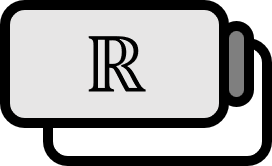Convergence of Norms of Function Sequences
Definitions
Suppose a sequence of functions $\left\{ f_{n} \right\}$ is given. If $\| f_{n} - f \|$ converges to $0$, then $f_{n}$ is said to converge in norm, denoted as follows.
$$ f_{n} \to f \text{ in norm } $$ or $$ \| f_{n} - f\| \to 0 $$ or $$ \lim \limits_{n \to 0} \| f_{n}-f\|=0 $$
Explanation
To define the limit of a sequence, the concept of distance is necessary. Since distance in a function space is defined by the norm, the convergence of a sequence of functions is defined as above.
The norm of a function is defined by integration, so for $f_{n}$ to converge in norm to $f$ means that the average difference between $f_{n}$ and $f$ over a given interval converges to $0$.
$$ f_{n}\rightarrow f\ \ \mathrm{in\ norm}\quad \iff \quad \int_{a}^b\left| f_{n}(x)-f(x) \right|^2 dx \rightarrow 0 $$
It is important to note that norm convergence and pointwise convergence do not guarantee each other. On the other hand, uniform convergence guarantees norm convergence.
Example
Norm convergence does not imply pointwise convergence
Consider the interval $[0,1]$ where $f_{n}$ is as follows.
$$ f_{n}(x) =\begin{cases} 1 & 0\le x \le \dfrac{1}{n} \\ 0 &\dfrac{1}{n}<x\le 1\end{cases} $$
Then, it can easily be shown that $\lim \limits_{n \to \infty} \| f_{n} \| = 0$ holds as follows.
$$ \lim \limits_{n \to \infty} \|f_{n}-0 \|^2 = \lim \limits_{n \to \infty} \int_{0}^1 |f(x)-0|^2 dx = \lim \limits_{n \to \infty} \int_{0}^{\frac{1}{n}}dx = \lim \limits_{n \to \infty} \dfrac{1}{n} = 0 $$
However, it is clear that for all $n$, since $f_{n}(0)=1$, $f_{n}(x)$ does not converge to $0$ at $x=0$.
Pointwise convergence does not imply norm convergence
Consider the interval $[0,1]$ where $g_{n}$ is as follows.
$$ g_{n}(x) = \begin{cases} n & 0<x<\dfrac{1}{n} \\ 0 & \mathrm{elsewhere} \end{cases} $$
Then, since for all $n$, $g_{n}(0)=0$ holds, $\lim \limits_{n \to \infty} g_{n}(x) = 0$ follows. However, $\lim \limits_{n \to \infty} \| g_{n} \| =0$ does not hold.
$$ \lim \limits_{n \to \infty} \| g_{n}-0 \|^2 = \lim \limits_{n \to \infty} \int_{0}^1 |g_{n}(x)-0|^2dx = \lim \limits_{n \to \infty} \int_{0}^{ \frac{1}{n} } n^2dx = \lim \limits_{n \to \infty} n = \infty \ne 0 $$
Theorem
Suppose on the interval $[a,b]$ that $f_{n}(x)$ uniformly converges to $f(x)$. Then, $f_{n}$ norm converges to $f$.
Proof
According to the conditions for uniform convergence, for all $x \in [a,b]$, there exists $|f_{n}(x)-f(x)| \le M_{n}$ such that $\lim \limits_{n \to \infty} M_{n} = 0$ is satisfied. Therefore, the following holds.
$$ \|f_{n}-f \|^2 = \int_{a}^b|f_{n}(x)-f(x)|^2dx \le \int_{a}^b {M_{n}}^2dx=(b-a){M_{n}}^2 $$
Therefore, $f_{n}$ norm converges to $f$.
$$ \lim \limits_{n \to \infty} \|f_{n}-f \|^2 \le \lim \limits_{n \to \infty} (b-a){M_{n}}^2 = 0 $$
■
